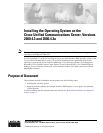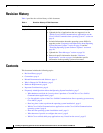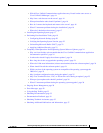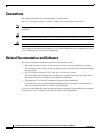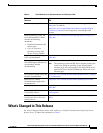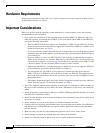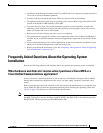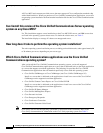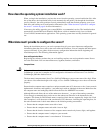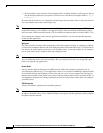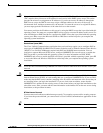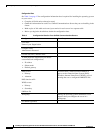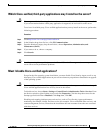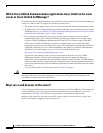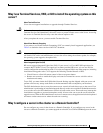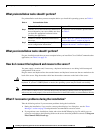
7
Installing the Operating System on the Cisco Unified Communications Server, Versions 2000.4.3 and 2000.4.3a
OL-10221-02
Frequently Asked Questions About the Operating System Installation
• Installing or using Netscape Navigator on the Cisco MCS or the Cisco-approved, customer-provided
server causes severe performance problems.
• Carefully read the instructions that follow before you proceed with the installation.
• The Ephemeral (Dynamic) port range in operating system version 2000.4.2 specifies 49152–65534
instead of the Windows 2000 default of 1024–4999.
• To protect the server from virus attacks during the operating system installation, complete the
operating system installation and apply the latest operating system upgrades and service releases
before you connect the server to the network.
• Before you install the software, place the server in a workgroup.
• The system provides support for a limited set of applications where Cisco Unified CallManager is
installed. If you are uncertain whether a third-party application is supported, do not install it on the
server.
• Always disable third-party, Cisco-verified applications on the server before the installation, except
when you are installing the operating system for the first time.
• Before you perform the installation, review the “Frequently Asked Questions About the Operating
System Installation” section on page 7.
Frequently Asked Questions About the Operating System
Installation
Review the following questions and responses before you perform the operating system installation.
What hardware and disks do I receive when I purchase a Cisco MCS or a
Cisco Unified Communications application?
You do not receive a monitor, keyboard, or mouse with any Cisco Media Convergence Server (MCS).
During initial startup and configuration of the server, you must supply a monitor, a keyboard, and a
mouse.
Before you begin the installation, carefully review the hardware documentation that accompanies your
server. Make sure that you have the appropriate hardware before installing the operating system. See
Table 2 on page 5 for references to server hardware specifications.
Note Unless otherwise specified, this document uses base server model numbers. For example, references to
the MCS-7825 apply to servers including the MCS-7825H1, the MCS-7825I1, the customer-provided
HP DL320 G3, and the customer-provided IBM xSeries 306.



